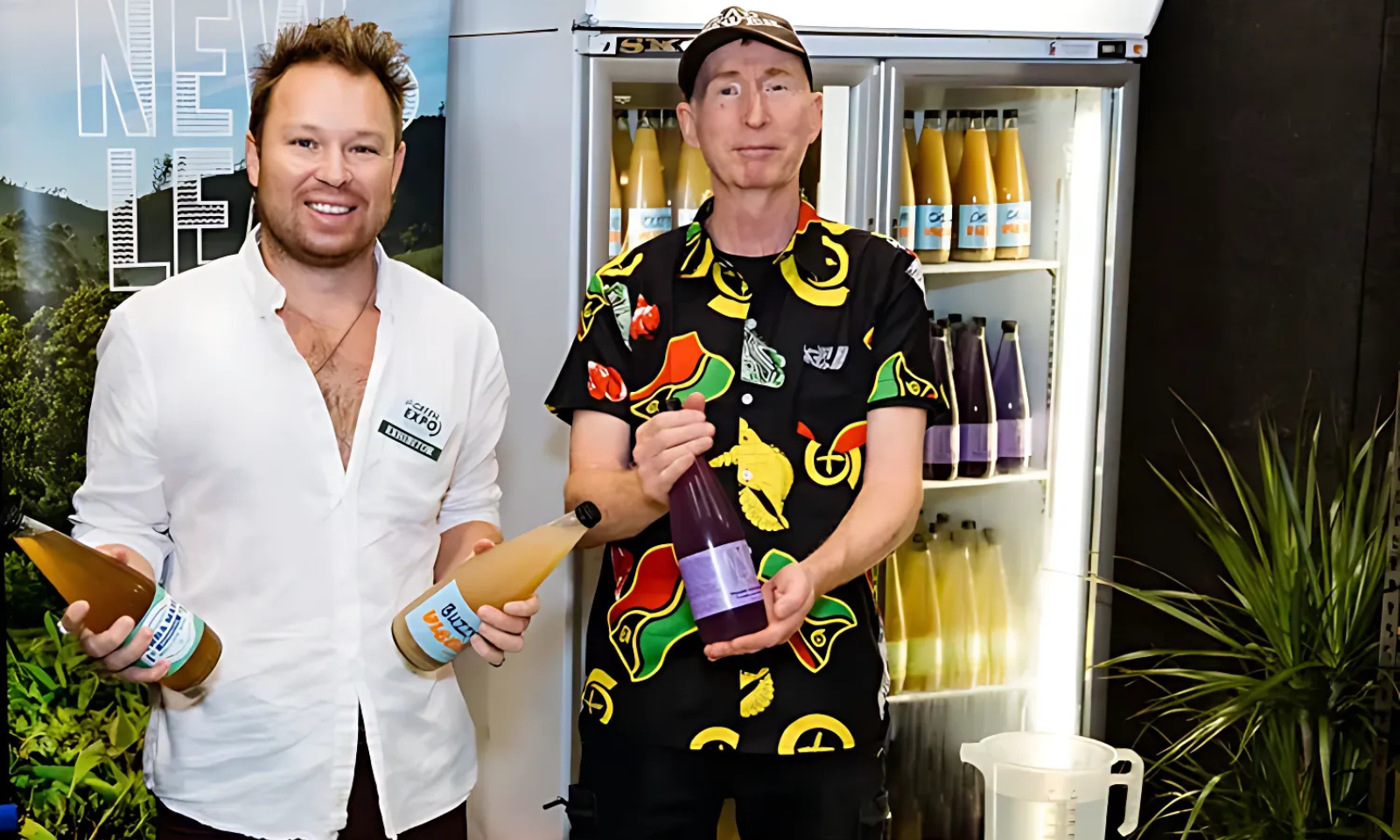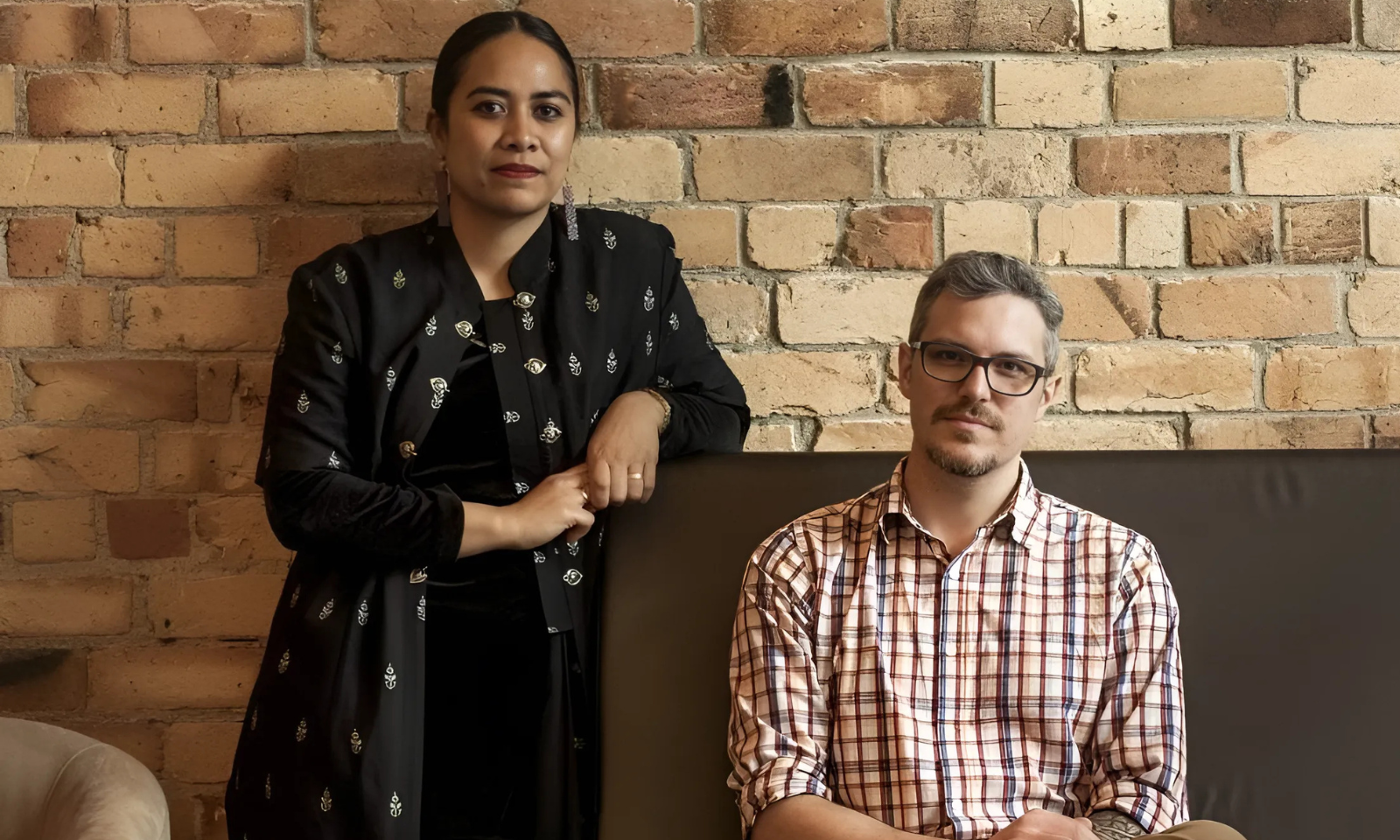

Todd Henry co-owner of Four Shells Kava
Photo/PMN Composite/Four Shells Kava
Kava is being widely misunderstood, says business co-owner
Todd Henry says the industry must be built on respect and education or risk doing a disservice to the beverage and the communities that treasure it.



Kiridox and Folau drop island love anthem before Valentine’s Day

‘I thought my world had ended’: Artist takes his story from a fall to the NZ arts festival stage



'Keep the eyeballs on the game': All Blacks legend backs Super Rugby shake-up

Kiridox and Folau drop island love anthem before Valentine’s Day

‘I thought my world had ended’: Artist takes his story from a fall to the NZ arts festival stage

A business owner in Auckland says kava is widely misunderstood, emphasising the importance of education to build cultural understanding and respect.
Todd Henry, the co-owner of Four Shells Kava in Central Auckland, told William Terite on Pacific Mornings that the marketing of kava should retain its cultural roots.
He was responding to criticism involving another Auckland-based kava business, Vibes Kava, over concerns of cultural appropriation and authenticity.
Vibes Kava operates out of a kombucha taproom in Grey Lynn, offering its take on traditional kava practices, including the sale of pre-bottled kava with labels such as “buzzy” and “chill” kava.
In a media interview, Vibes Kava co-owner Charles Byram, who is of Sāmoan descent, says he is aware of the criticism but believes reactions to his operation would be different if he had “darker skin.”
Kava bars have emerged in Aotearoa New Zealand and elsewhere, including Australia and the United States, offering varying interpretations of a cultural practice central to Pacific cultures.
Critics have long argued that businesses like Vibes Kava are commodifying a deeply rooted cultural tradition, and additional consideration and competency must be at the heart of their practice.
Henry, who heralds his family-owned operation as being deeply rooted in Tongan values, says the marketing of kava as an alcohol alternative dilutes its importance as a cultural cornerstone.
“I think when the marketing portrays kava as something that is just a replacement for alcohol, a party thing, portrayed in a way that doesn't preserve the essence of what faikava is, yeah, it is a thing that I've seen over the years,” he says.
Henry, of European descent, co-owns Four Shells with his wife, Anau, who is of Tongan descent.
Henry believes ethnicity should not be a barrier to culture, who should be able to engage with kava, but says intention is important, particularly for non-Pasifika interested in engaging with kava for the first time.
“I don't think ethnicity should be a barrier, but it's how the person of whatever ethnicity they are comes into the kava space, what the reasons are, how they've learned about kava,” he says.
According to Four Shells’ website, it is founded on Tongan principles of faka’apa’apa (respect), tauhivā (maintaining good relationships), mamahi’ime’a (being passionate about one’s beliefs), and loto tō (humility and being open).
“I learned about kava exclusively in the Pacific, particularly in the Tongan community in Tonga and here,” Henry says.

Vibes Kava owners Charles Byram, left, and Derek Hillen. Photo/Brady Dyer
He adds that vendors whose marketing tactics are being accused of misconstruing kava must preserve the importance of kava as a medium to share the vā, or space, by bringing people together.
“The best way to preserve it is just honouring kava for what it is and what function it serves in society and teaching other people about that,” he says.
Henry says he has to remind some customers at Four Shells that kava is not a means to get high or drunk, and believes in providing knowledge and awareness to address any misconceptions.
“I think it is about education at the end of the day,” he says. “Kava to a lot of people, [particularly] non-Pacific people, is a very new thing, a very misunderstood thing.”
At Four Shells, he reinforces an underlying respect for kava, explaining that individuals and businesses are doing a disservice to kava as a Pacific treasure if they do not respect it.

Owners of Four Shells Kava Anau Mesui, left, and Todd Henry. Photo/kavasociety.nz
“We just put a lot of emphasis on respect, respecting kava, respecting the places it comes from, the people who grow it, the traditional cultures that have created it for what it is,” he says.
“I think anything that deviates from the essence of what kava drinking is does a disservice to kava.”
“Kava is not something that you drink in isolation by yourself to get high [or] drunk - it is something that brings people together.”
Henry believes operators must preserve the cultural practice through educating people about its importance and centrality in Pacific cultures.
According to Deviant Kava, there are more than 300 kava bars across the United States, with commercial operators becoming increasingly common as Pacific and non-Pacific communities become more engaged with kava.